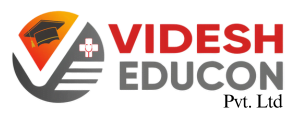Aerospace Engineering for Higher Studies
Your dream of studying in the abroad is just a step away! Register Today and Make Your Dreams a Reality!
What is Aerospace Engineering?
Aerospace Engineering is a specialized field of engineering that focuses on the design, development, testing, and production of aircraft and spacecraft. This discipline encompasses two primary branches: aeronautical engineering, which deals with aircraft within Earth’s atmosphere, and astronautical engineering, which focuses on spacecraft and systems used beyond Earth. Aerospace engineers apply principles of physics, materials science, and mathematics to create advanced technologies that enhance flight performance, safety, and efficiency.
The field of Aerospace Engineering involves a wide range of applications, from commercial and military aviation to space exploration and satellite technology. Aerospace engineers are involved in developing cutting-edge systems and technologies, such as high-speed aircraft, space shuttles, and satellite communication systems. They work on solving complex engineering problems, improving existing technologies, and innovating new solutions to advance aerospace capabilities and contribute to space exploration and national security.
Book Free Consultation to Study in Abroad
Why Should One Choose Aerospace Engineering?
- Exciting and Innovative Field: Aerospace Engineering is at the forefront of technological innovation, involving the development of advanced technologies for aviation and space exploration. It offers the opportunity to work on groundbreaking projects and be part of a field that pushes the boundaries of what is possible.
- High Demand for Skilled Professionals: With the continuous advancements in aviation and space technology, there is a strong demand for skilled aerospace engineers. This demand ensures excellent job prospects and career stability in various sectors, including defense, commercial aviation, and space exploration.
- Opportunities for Global Impact: Aerospace engineers contribute to technologies that have a significant impact on global issues, such as improving transportation efficiency, advancing space exploration, and enhancing national security.
- Diverse Career Paths: The field of Aerospace Engineering offers a wide range of career opportunities, from designing and testing aircraft and spacecraft to working on satellite systems and space missions, providing flexibility and variety in career options.
- Competitive Salaries and Benefits: Aerospace Engineering is a well-compensated profession, with competitive salaries and comprehensive benefits that reflect the specialized skills and expertise required in the field.
Necessary Skills for Aerospace Engineering
- Strong Analytical and Problem-Solving Skills: Aerospace engineers must be adept at analyzing complex data, identifying problems, and developing effective solutions to enhance the performance and safety of aerospace systems.
- Proficiency in Mathematics and Physics: A solid understanding of mathematics and physics is essential for designing and analyzing aerospace systems, as these principles are fundamental to solving engineering problems in the field.
- Technical Proficiency: Familiarity with engineering software and tools, such as CAD (Computer-Aided Design), MATLAB, and simulation software, is important for designing and testing aerospace components and systems.
- Attention to Detail: Precision and accuracy are crucial in aerospace engineering, as even minor errors can have significant consequences for the performance and safety of aircraft and spacecraft.
- Communication and Teamwork Skills: Effective communication and teamwork skills are vital for collaborating with multidisciplinary teams, conveying technical information clearly, and working together to achieve project goals.
Career Opportunities After Pursuing Aerospace Engineering
- Aerospace Engineer: Design, develop, and test aircraft and spacecraft, focusing on improving performance, safety, and efficiency in aviation and space exploration.
- Aircraft Design Engineer: Work on designing and optimizing the structure and systems of aircraft to enhance their performance, safety, and fuel efficiency.
- Spacecraft Systems Engineer: Develop and manage the systems and components used in spacecraft, including propulsion, avionics, and communication systems.
- Flight Test Engineer: Conduct tests and evaluations of aircraft and spacecraft to assess their performance, safety, and reliability, ensuring they meet design specifications and regulatory standards.
- Propulsion Engineer: Design and develop propulsion systems for aircraft and spacecraft, including engines and thrusters, to achieve the required performance and efficiency.
- Satellite Systems Engineer: Work on the design, development, and operation of satellite systems, including communication, observation, and navigation satellites.
- Avionics Engineer: Develop and maintain the electronic systems used in aircraft and spacecraft, such as navigation, communication, and control systems.
- Aerospace Project Manager: Oversee and manage aerospace projects, coordinating with teams, managing budgets, and ensuring that projects are completed on time and within scope.
- Space Mission Planner: Develop and plan space missions, including mission objectives, spacecraft design, and mission logistics, to achieve specific goals in space exploration.
- Research and Development Engineer: Conduct research and develop new technologies and innovations in aerospace engineering, contributing to advancements in aviation and space exploration.
Life After Masters in Aerospace Engineering
- Advanced Career Opportunities: A master’s degree in Aerospace Engineering opens doors to senior and specialized roles within organizations, allowing graduates to take on leadership positions and manage complex projects.
- Increased Earning Potential: Advanced qualifications often lead to higher salaries and better compensation packages, reflecting the specialized knowledge and skills acquired during the master’s program.
- Expertise and Specialization: A master’s program allows for in-depth study and specialization in areas such as propulsion, avionics, or space systems, enabling graduates to tackle complex engineering challenges and drive innovation.
- Networking Opportunities: Graduate programs provide opportunities to connect with industry professionals, researchers, and peers, fostering valuable relationships for future career growth and collaboration.
- Contribution to Cutting-Edge Research: Graduates can engage in cutting-edge research and development, contribute to technological advancements, and drive innovation in aerospace engineering, enhancing their reputation and influence in the field.
